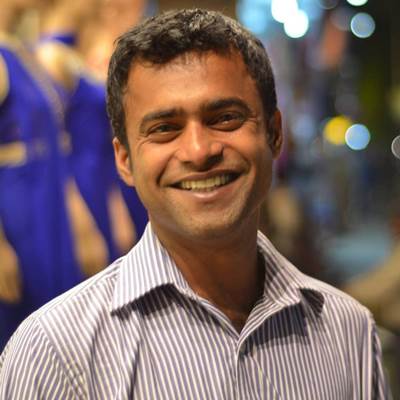More than 181 members of the Hakki Pikki tribal community from Karnataka are stuck in violence-hit Sudan, even as the government is making efforts to bring them back. Who are the Hakki Pikki, and why did so many travel to far-away Sudan?
Who are the Hakki Pikki?
The Hakki Pikki is a tribe that lives in several states in west and south India, especially near forest areas. Hakki Pikkis (Hakki in Kannada means ‘bird’ and Pikki means ‘catchers’) are a semi-nomadic tribe, traditionally of bird catchers and hunters.
According to the 2011 census, the Hakki Pikki population in Karnataka is 11,892, and they live majorly in Davangere, Mysuru, Kolar, Hassan and Shivmogga districts. In different regions, they are known by different names, such as Mel-Shikari in northern Karnataka and Maharashtra.
MR Gangadhar, Vice Chancellor of Chamarajanagar University and an anthropologist who has conducted a study on the tribe, said, “The Hakki Pikki move in groups from place to place in search of livelihood. They are divided into four clans, called Gujaratia, Panwar, Kaliwala and Mewaras. These clans can be equated with castes in the traditional Hindu society. In the olden days, there was a hierarchy among the clans, with the Gujaratia at the top and the Mewaras at the bottom. The forest is the main natural resource of the Hakki Pikki.”
Which states are they found in?
Hakki Pikki people are believed to hail originally from the bordering districts of Gujarat and Rajasthan. According to Gangadhar, they came to the south in search of game. “To Karnataka, they seem to have arrived via Andhra Pradesh, as they still remember a place called Jalapally near Hyderabad as their ancestral home, where their forefathers lived for a considerable period. They are now spread across south India,” he said.
Till a few years ago, women used to wear the ghagra (skirt) common in Rajasthan, although now they wear saris and other garments.
What were their traditional jobs, and what do they do now?
Traditionally, Hakki Pikkis lived in forest areas, leading a nomadic life for nine months a year and coming back to their permanent camps for three. Locals in Pakshirajapura, a Hakki Pikki village in Mysuru district The Indian Express visited, said earlier, men of the tribe would hunt while women begged in villages. But as the wildlife protection laws became stricter, the Hakki Pikkis in Karnataka started selling spices, herbal oils, and plastic flowers in local temple fairs.
P S Nanjunda Swamy, state president of the Karnataka Adivasi Budakattu Hakki Pikki Jananga, an organisation that works for members of the tribe, said that the community moved to villages from the forests in the 1950s. “Earlier, we killed animals to make a living. But then some of our community members were booked and jailed under wildlife laws. So we shifted to selling herbal oils and other materials in villages and towns.”
The herbal oil business took off, and now the tribe members go to many places across the globe to sell their products.
According to Nanjunda Swamy, the Hakki Pikkis in Tamil Nadu travelled to Singapore, Thailand and other places about 20-25 years ago to sell some marbles, in the process discovering there was a huge demand for Ayurvedic products in the African continent. They started selling their products in Africa, and Karnataka Hakki Pikkis followed them. People from the state have been traveling to African countries for the past 20 years now.
Education levels among the Hakki Pikkis are still low. For example, in the 2,000-strong population of Pakshirajapura, only eight people have completed graduation-level courses and one person works as a police constable.
What are their rituals and customs?
Hakki Pikkis in Karnataka follow Hindu traditions and celebrate all Hindu festivals. They are non-vegetarians. The eldest son in a family is not supposed to cut his hair so that he can be identified easily.
The tribe prefers cross-cousin marriages. According to locals, the usual age of marriage is 18 for women and 22 for men. The society is matriarchal, where the groom gives dowry to the bride’s family.
Devaraj, 28, a Pakshirajapura resident, said he paid Rs 50,000 to his in-laws as dowry to get married to his wife. Monogamy is the norm.
How well do they earn in African countries?
The residents of Pakshirajapura said African countries offer them an opportunity to escape poverty faster. “There is demand for our products in the African continent. If a person invests say Rs 5 lakh on raw materials (hibiscus powder, oil extraction, gooseberry, Ayurvedic plants, etc.), they have a chance to double or triple it in a matter of 3-6 months in African countries. But in India, you don’t have such a market and business. We do sell online and promote products on social media, including Facebook and YouTube,” said Anil Kumar, a community member.

 Kiran Parashar… read more
Kiran Parashar… read more